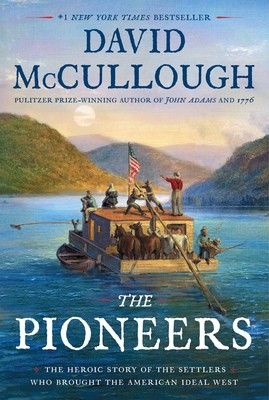 |
| Sample page from "Three Ancestors Who Caught Ohio Fever" |
Just in time to mail this for Halloween, I combined and edited three recent blog posts into a colorful seven-page booklet about my husband's pioneer ancestors in Ohio. One of these ancestors was born in the American Colonies, the year before the Revolution began; the other two were born in the newly-independent United States. All caught "Ohio fever" and went west for fresh, fertile farm land. That's my theme for the booklet.
The Pioneer Lives of Denning, McClure, and Larimer
To introduce the booklet, I created a cover page with a large, colorful map of the United States in 1785. It shows descendants where their ancestors Job Denning, John Larimer, and John McClure lived in the East before they moved.
The map also shows their wilderness destination in the Northwest Territory, then the western frontier of the fledgling country. Land beyond that belonged to Spain. Ohio statehood was years in the future when these ancestors began to clear trees for farming. All this is historical context that helps descendants understand and appreciate what their ancestors faced as pioneers.
Two Pages Per Ancestor
After the cover page, each of the ancestors has a two-page spread, including a full-color regional map (where he lived, where he moved). This is followed by a brief biographical sketch, written simply but in vivid terms, tracing each man's life from birth to marriage to children to final resting place.
The women in their lives figure prominently in my narrative because they, too, were pioneers--wives for all but also daughters, in some cases.
Where I had enough details, I mentioned specific pioneering activities, such as helping to found a church or serving in the local militia.
The excerpt at top shows the second page of Job Denning's ancestor sketch. I tried to succinctly sum up his life in context (above, I called Job Denning a "pioneer turned civic leader").
Descendants Want to Know: How Are They Related to ME?
These ancestors lived, like, a l-o-n-g time ago, right? I want my grandkids to see at a glance how, exactly, they're related to each of these ole-timey ancestors.
So at the end of each sketch, I included a quick pedigree of the ancestor couple and the descendants in the direct line to my grandkids.
This will, I hope, give the youngest a very concrete idea of the family connections between them and their pioneering great-great-great-great-great grandparents!
Maybe the booklet will "trick" them into understanding that their ancestors weren't just old-fashioned characters from family history--they were true pioneers who actually made American history.
It was a treat for me to put this together.
This week's #52Ancestors prompt is "trick or treat" - thanks to Amy Johnson Crow.




